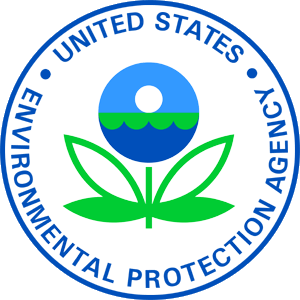EPA Awards $400,000 to NanoAffix Science, LLC, in Wauwatosa, Wisconsin, to Support Commercialization of Environmental Technologies
CHICAGO (April 20, 2021) —Today, the U.S. Environmental Protection Agency (EPA) announced $3,192,989 in total funding for eight small businesses to further develop and commercialize technologies to protect public health and the environment, including $400,000 for NanoAffix Science, LLC, Wauwatosa, Wis. The funded technologies are focused on clean and safe water, air quality monitoring, land revitalization, and sustainable materials management.
These eight small businesses are receiving up to $400,000 in Phase II funding from EPA’s Small Business Innovation Research (SBIR) program. These companies were previously awarded SBIR Phase I funding of up to $100,000 for “proof of concept” of their innovative environmental technologies and are now receiving Phase II funding to further advance and commercialize the technology. This year’s SBIR Phase II recipients are:
- Aerodyne Research, Inc., Billerica, Mass., is developing an ethylene-oxide monitor with an ultra-low limit of detection that can be used for air monitoring to assess public health risks.
- AquaRealTime, Inc., Boulder, Colo., is creating AlgaeTracker™, a sensor that can be deployed by a non-specialist in 30 minutes for early detection and monitoring of harmful algal blooms.
- Capro-X, Inc., Ithaca, N.Y., is developing a fermentation process, called WheyAway, that converts lactose-containing dairy industry process streams into treated water and a mixture of valuable fatty acid chemicals to decrease the expense and environmental impact associated with Greek yogurt production.
- Hedin Environmental, Inc., Pittsburgh, Pa., is creating an innovative, lower-cost carbonation process to treat acidic, metal-contaminated mine water that can be used by mining companies and those working to restore areas around abandoned mines.
- Lucendi, Inc., Los Angeles, Calif., is building a portable, automated platform for microplastic identification and characterization which will improve the ability to monitor and assess the impact of microplastic pollution on water quality.
- NanoAffix Science, LLC, Wauwatosa, Wis., is creating a handheld device for real-time, onsite detection of sulfur dioxide, an air pollutant which can adversely affect respiratory and cardiovascular health in people.
- RemWell, LLC, Potsdam, N.Y., is creating a remediation technology that uses high frequency ultrasound to clean up groundwater contaminated by PFAS, a group of man-made chemicals that persist in the environment and human body and are believed to lead to adverse health effects.
- Triangle Environmental Health Initiative, LLC, Durham, N.C., is designing a technology that can be added to septic systems to remove and recover nutrients thereby reducing the impact these nutrients would have on the surrounding environment.
EPA is one of 11 federal agencies that participate in the SBIR program, a competitive program that supports small businesses in the development and commercialization of technological solutions. This program stimulates the economy while assisting the country in meeting its research and development needs.
For more information on EPA’s SBIR Phase II recipients, visit: https://cfpub.epa.gov/ncer_abstracts/index.cfm/fuseaction/recipients.display/rfa_id/680/records_per_page/ALL
Learn more about EPA’s SBIR program: https://www.epa.gov/sbir
Learn more about the Federal SBIR Program: www.SBIR.gov
NOTE: This press release was submitted to Urban Milwaukee and was not written by an Urban Milwaukee writer. While it is believed to be reliable, Urban Milwaukee does not guarantee its accuracy or completeness.
Mentioned in This Press Release
Recent Press Releases by U.S. Environmental Protection Agency
EPA Releases Draft Health-Based Recommendations for PFAS Levels in Bodies of Water
Dec 19th, 2024 by U.S. Environmental Protection AgencyCriteria can be used to inform water quality standards to protect people from exposure to PFAS
Crane Company Manitowoc to Pay $42.6M for Clean Air Act Violations for Sale of Noncompliant Diesel Engines in Heavy Duty Cranes
Dec 19th, 2024 by U.S. Environmental Protection AgencySettlement requires company to retrofit a short-line locomotive engine to improve air quality along 70-mile-long pathway in the Sparrows Point area of Maryland






















